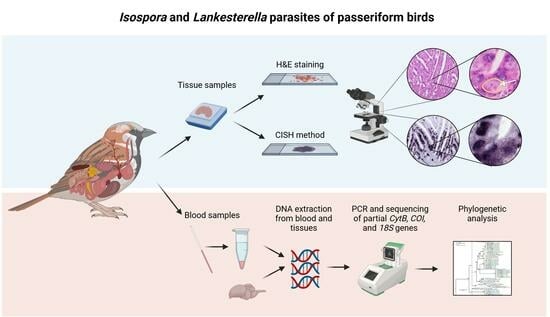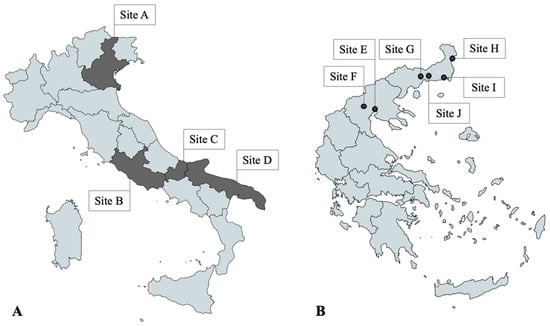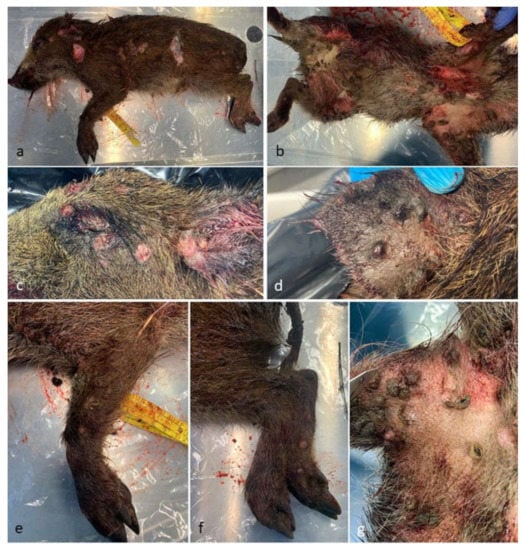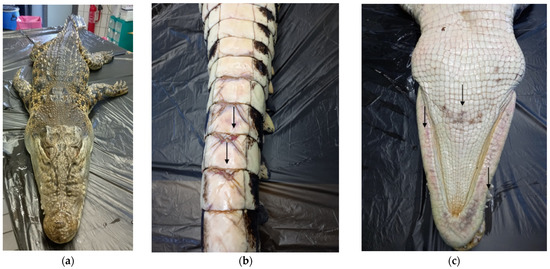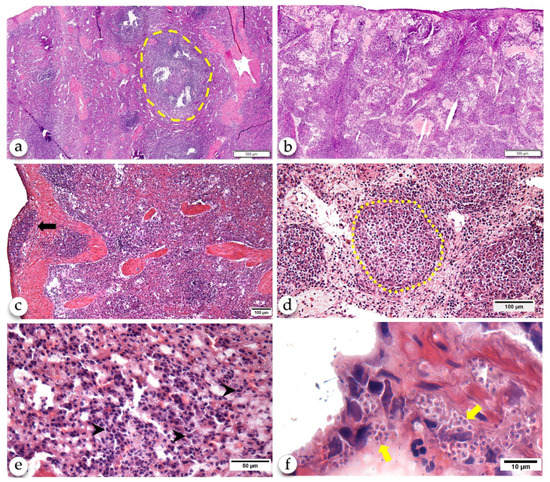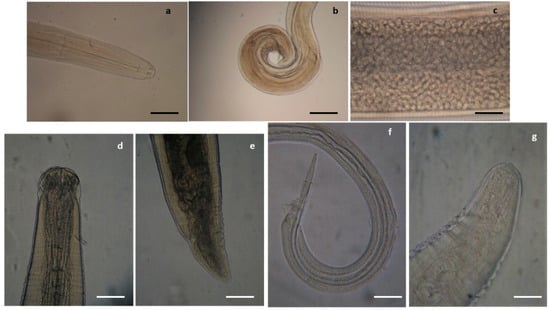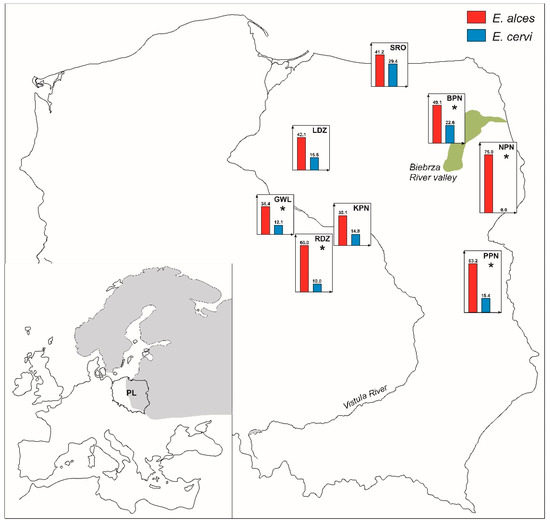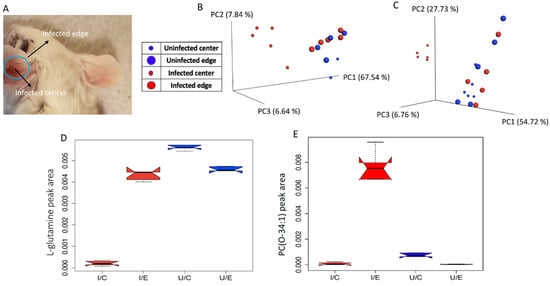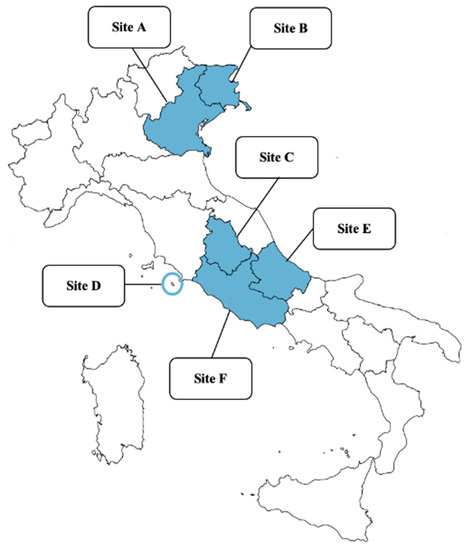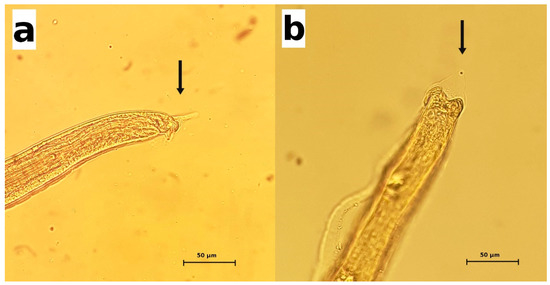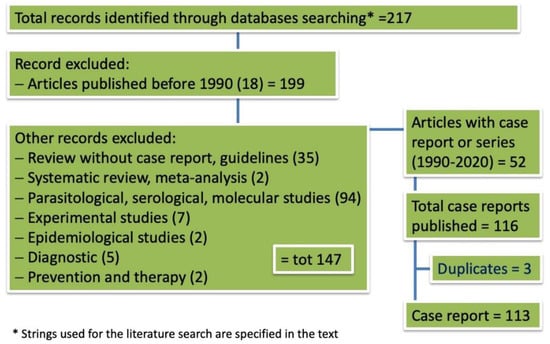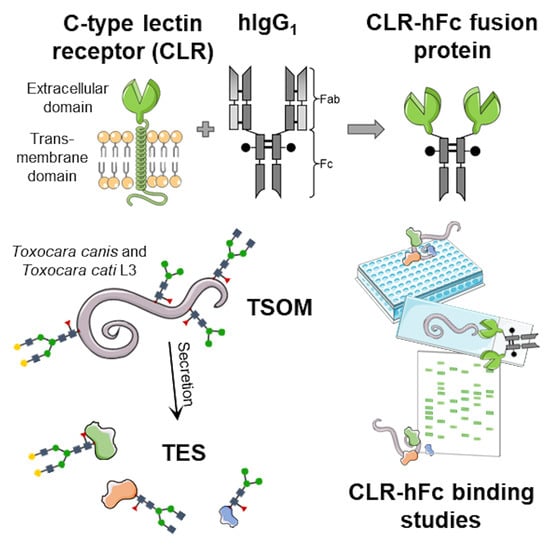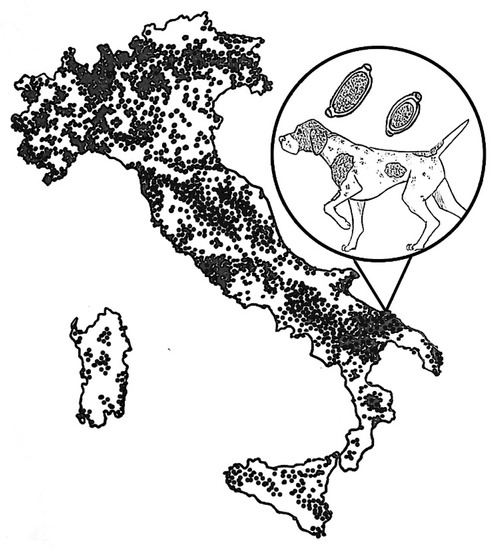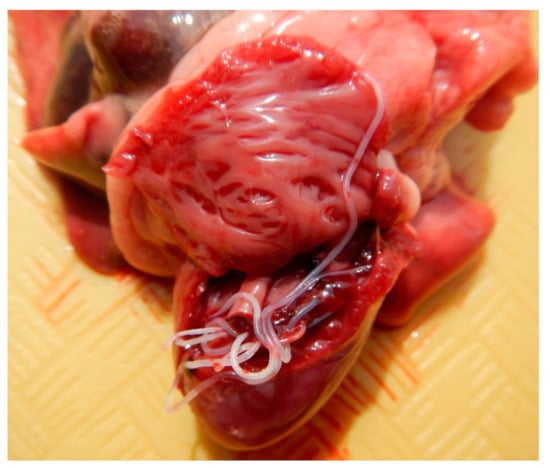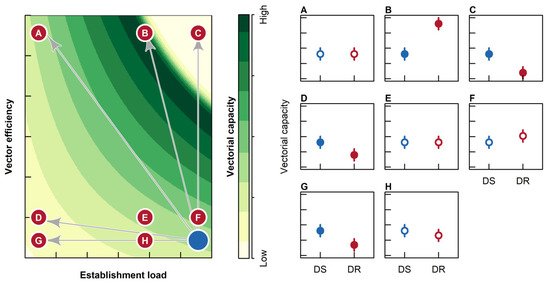Pathology and Parasitic Diseases of Animals
A topical collection in Pathogens (ISSN 2076-0817). This collection belongs to the section "Parasitic Pathogens".
Viewed by 58495Editors
Interests: parasites (helminths, protozoa, arthropods); animals (domestic, wild, exotic); parasitic diseases; parasites and histopathological findings; interaction between parasites and host animals; parasites evasion strategies of host defense mechanisms; parasites and immunology
Special Issues, Collections and Topics in MDPI journals
Interests: interaction between parasites and host; mutual immunopathological effects and some co-evolutionary benefits; cell-mediated immune response of the host and evolution/fate of parasitic disease; immune cells and parasitic spread; strategies of parasite adaptation to the host immunological mechanisms
Interests: interaction between parasites and host; mutual immunopathological effects and some co-evolutionary benefits; cell-mediated immune response of the host and evolution/fate of parasitic disease; immune cells and parasitic spread; strategies of parasite adaptation to the host immunological mechanisms
Topical Collection Information
Dear Colleagues,
Parasitic diseases are often the cause of growth delay, decrease of physical development and fertility, as well as of serious health problems and death in infected animals. In addition, several parasites may infect both animals and humans, raising public health concerns. The pathological changes that parasites may induce in their animal hosts are caused by a variety of pathogenic mechanisms, depending on the host/parasite relationships. In infected animal hosts, parasites may be responsible for lesions by toxic, obstructive, subtractive, traumatic, allergic, necrotic, inflammatory, and immunosuppressive pathogenic mechanisms. Parasites may also have the ability to cause tumors or tumor-like lesions in affected animals.
Histopathological features of parasitic diseases may play an important role in the diagnosis and knowledge of the severity and complications of parasitic diseases, by allowing the identification of the parasite species involved and the areas of pathological lesions, the detection of histopathological changes, particularly important for the differential diagnosis or to confirm the presumptive diagnosis of a parasitic disease or, again, by highlighting possible bacterial or viral complications and the outlook of treatment. Histopathological examination may also provide insights into the interactions between parasites and animal hosts and their impact on infected animals.
Immune-phenotipization of immune cells participating in the immune response of the animal against parasites is also very important to understand if the response is a positive or negative process for the host. Further, the recent paradigm that permits evaluating host M1 or M2 macrophage response is fundamental to have some provisional information regarding the possibility for the host of improving health conditions or not after parasite infection.
The postgenomic era has generated unparalleled opportunities for creating and integrating systems biology data (i.e., organism‐ or cellular‐scale data produced through numerous ‐omics or systemwide technologies). This holistic approach is in direct contrast to conventional reductionist methods that ‘reduce’ systems into smaller, more tractable units. Systems‐based methods are particularly useful to study complex biological relationships that are: (1) open, with constant information exchange and a net flow of resources, and (2) stochastic, with spatial, temporal, and population heterogeneity. Host–parasite systems embody all of these defining characteristics. ‐Omics technologies are also much more efficient and economical when comparing the cumulative time, labor, and cost per gene to traditional reductionist strategies.
This Topic Collection is devoted to collecting original papers and/or review papers dealing with histopathological features of parasitic diseases, immunopathological studies of host–parasite immune-response characterization, and host–parasite systems. It is focused on parasitic diseases caused by different parasite pathogens of veterinary interest responsible for economic losses or that may negatively affect animal and human health and welfare. Parasites affecting vertebrate and invertebrate animal species used for human consumption (e.g., bred or caught fishes, mollusks, and crustaceans) and for producing food for human consumption (e.g., bees) or that can be the vectors or the hosts of important human and animal parasitic diseases (e.g., arthropod species responsible for malaria, Leishmania, Trypanosoma and other parasite transmission; snails involved in transmission of flukes) also represent a relevant field in this Topic Collection.
Prof. Stefania Perrucci
Dr. Livio Galosi
Prof. Dr. Giacomo Rossi
Collection Editors
Manuscript Submission Information
Manuscripts should be submitted online at www.mdpi.com by registering and logging in to this website. Once you are registered, click here to go to the submission form. Manuscripts can be submitted until the deadline. All submissions that pass pre-check are peer-reviewed. Accepted papers will be published continuously in the journal (as soon as accepted) and will be listed together on the collection website. Research articles, review articles as well as short communications are invited. For planned papers, a title and short abstract (about 100 words) can be sent to the Editorial Office for announcement on this website.
Submitted manuscripts should not have been published previously, nor be under consideration for publication elsewhere (except conference proceedings papers). All manuscripts are thoroughly refereed through a single-blind peer-review process. A guide for authors and other relevant information for submission of manuscripts is available on the Instructions for Authors page. Pathogens is an international peer-reviewed open access monthly journal published by MDPI.
Please visit the Instructions for Authors page before submitting a manuscript. The Article Processing Charge (APC) for publication in this open access journal is 2200 CHF (Swiss Francs). Submitted papers should be well formatted and use good English. Authors may use MDPI's English editing service prior to publication or during author revisions.
Keywords
- parasitic diseases
- anatomo-histopathological features
- immunophenotipization
- immunopathology
- cell-mediated response
- parasite strategies
- co-evolutionary benefits
- host–parasite systems
- macrophages
- animals








